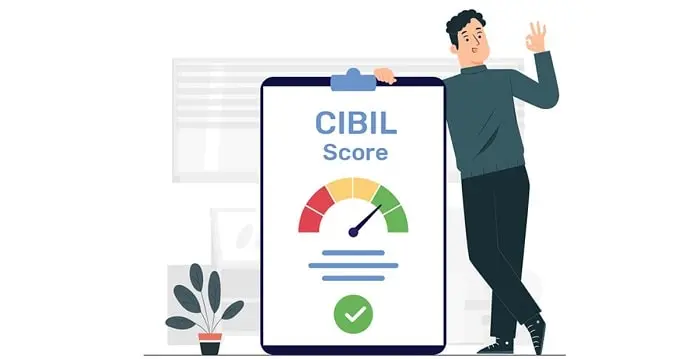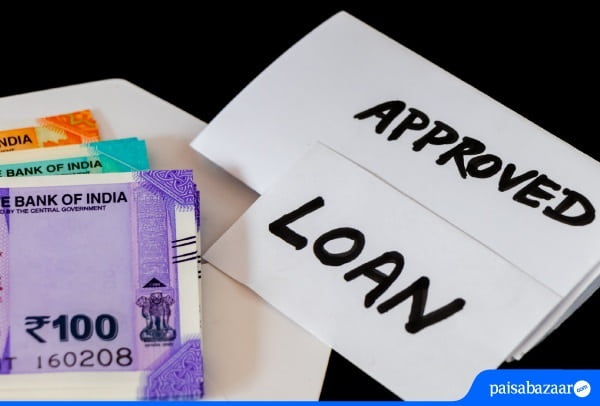Banks and non-banking financial companies (NBFCs) offering personal loans consider several factors while evaluating your loan application. If you apply for a personal loan without carefully considering these factors, the lender may reject your loan application. Understanding the main factors that lead lenders to reject personal loan applications can help prospective borrowers improve their chances of availing personal loans. Here are five reasons why lenders usually reject personal loan applications.
Lower Credit Scores
Banks/NBFCs usually consider the credit scores of their personal loan applicants as a preliminary check to determine their creditworthiness. Lenders prefer approving the personal loan applications of those having credit scores of 750 and above. Personal loan applicants with lower credit scores are considered as less financially disciplined and thus, are more likely to default on their loans. Thus, those having lower credit scores have higher chances of personal loan rejection. While some lenders approve personal loans to those with low credit scores, such lenders usually charge higher interest rates from such loan applicants.
Individuals planning to avail personal loans should focus on maintaining higher credit scores. Following healthy credit practices like repaying credit card bills and EMIs by their due dates, avoiding making multiple loan or credit card applications within short time periods, etc. can improve their credit scores. Those who have never availed loan or credit card in the past can avail credit cards to build their credit scores. As the transactions made through credit cards are also reported to the bureaus, using credit cards for payments and repaying their bills by their due dates would steadily build their credit scores. Those who cannot avail regular credit cards can opt for secured cards to build their credit scores.
Individuals should also fetch their credit reports from credit bureaus at regular intervals to keep themselves credit-ready. Alternatively, they can visit online financial marketplaces to fetch their credit reports. Fetching credit reports and reviewing them on a regular basis will help them identify any incorrect information, clerical error or fraudulent credit activity and report them to the concerned lender and credit bureaus for the purpose of rectification. A rectified credit report will improve your credit scores and thereby, increase your chances of availing lower personal loan interest rates.
Lower EMI Affordability
Lenders also consider the loan repayment capacity of their loan applicants while evaluating their personal loan eligibility. Banks and NBFCs usually prefer approving personal loan applications of individuals whose monthly loan repayment obligations, including the EMI of their proposed personal loan, is within 50-55% of their net monthly income. Lenders may either reject the personal loan applications of those exceeding the above-mentioned ratio or approve their personal loans at higher interest rates. Such applicants can improve their personal loan eligibility by selecting longer loan tenures and/or lower loan amounts. Doing so will lower the EMI of their proposed personal loan and thereby, bring down their monthly repayment obligation within the aforementioned limit.
Unstable Employment History
Personal loan lenders consider the employment stability of their applicants while evaluating their loan applications. Applicants who change their jobs frequently are considered to carry higher credit risk for the lenders and hence, have lower chances of loan approval.
Moreover, some personal loan lenders also require that their salaried applicants should have at least 6 months to 1 year of service in their current organisation. Therefore, consumers planning to avail personal loans in the near future should avoid job switches to improve their chances of personal loan approval.
Approaching Multiple Lenders within a Short Duration
Whenever you apply for a personal loan with a bank/NBFC, your lender will fetch your credit report from the credit bureaus to evaluate your creditworthiness. Such credit report requests from the lender are known as hard inquiries. The credit bureau will reduce the loan applicant’s credit score by a few points with every such hard inquiry. Thus, making multiple hard inquiries within a short time period may drastically reduce your credit score, thus, lowering your chance of availing personal loans. To avoid this, loan applicants should visit online financial marketplaces and compare personal loan offers from multiple lenders before making the final personal loan application. Credit bureaus consider credit report requests raised through online financial marketplaces as soft inquiries and as such, these inquiries have no adverse impact on your credit score.
Ineligible Occupation Profile
Lenders also consider the occupation profile of their personal loan applicants’ during the loan evaluation process. They may reject the personal loan applications of prospective borrowers whose occupation or employer profile is not among their list of preferred occupation/employer profiles. Banks/NBFCs may also reject your loan application if you are working for an organisation not present in the lender’s list of approved employers. Even among self-employed applicants, lenders might reject the personal loan applications made by individuals belonging to their negative list of professions or businesses.
















